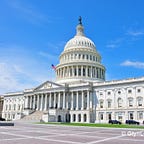Stark contrasts in education policy separate the Senate candidates
By Emma Spring
U.S. Senate candidates Tammy Baldwin and Leah Vukmir attended public high schools, graduated from private colleges and then earned advanced degrees from the University of Wisconsin-Madison.
That may be the extent of their common ground regarding education.
They diverge, for example, over school choice and whether taxpayer dollars should fund private school educations (Baldwin says no; Vukmir helped it expand).
The now-widespread private-school voucher movement started in Milwaukee in the 1990s, when it was limited to students of low-income parents as an alternative to public schools. Now, income limits have been raised and the program has expanded to various cities statewide.
Vukmir’s advocacy on education issues, including private school choice, has drawn notice nationally.
She tells voters her disappointment with what she viewed as very low standards eventually caused her to put both her children in private schools. She wants all families to have that option, regardless of their income.
Vukmir entered public life in 2002 when she was elected to the state Assembly.
In 2006, she voted for the expansion of the voucher program. In Wisconsin, and nationally as chair of the American Legislative Exchange Council, a partnership of conservative lawmakers and business, Vukmir has criticized teachers unions and extolled competition.
“Our Milwaukee parental choice program caused the Milwaukee Public Schools to suddenly realize, ‘We are in the business of competition and now we have to attract parents as well,’” she said in a 2016 speech.
DeVos Factor
Elisabeth “Betsy” DeVos is also in the business of competition. She is the current US Secretary of Education and longtime supporter of school choice.
The politically active DeVos family started making monetary donations to Vukmir’s campaign in 2005 when she was in the State Assembly.
Vukmir was far from the only recipient.
Members of the DeVos family have contributed more than $400,000 to the campaigns of Wisconsin elected officials since 2000, state campaign data maintained by Wisdc.org shows.
Senator Baldwin voted against confirming President Trump’s nomination of DeVos in February 2017.
Baldwin has called DeVos a “a billionaire who used her fortune to push for giving taxpayer dollars to private schools at the expense of public schools.”
She added: “Every child deserves equality and access to a quality public education. Betsy DeVos would create a system of have and have-nots.”
Baldwin also has challenged Secretary DeVos on her budget plan. It called for cuts in Baldwin-backed programs to help make college more affordable. Baldwin is a member of the Senate Appropriations and Education Committees, and a co-chair of the House/Senate Career and Technical Education caucus.
Labor loves Baldwin
Among those opposed to the DeVos pick was the National Education Association (NEA), America’s biggest teachers union.
In 2012, the NEA endorsed Baldwin’s Senate bid. The group gave her a 100% rating in 2015 and again in 2017, indicating her pro-public education stance.
The NEA argues that private-school vouchers “divert essential resources from public schools to private and religious schools, while offering no real ‘choice’ for the overwhelming majority of students.”
The union says that educators “oppose alternatives that divert attention, energy, and resources from efforts to reduce class size, enhance teacher quality, and provide every student with books, computers, and safe and orderly schools.”
The NEA opposed the FY18 Omnibus Appropriations bill in 2017, saying that the bill made “drastic cuts to public education funding.”
The union also opposed a final passage of the GOP leadership’s Tax Cuts and Jobs Act saying it would undermine public education funding, create voucher-like schemes for the wealthy, and add $1.5 trillion to the deficit.
In 2017, Baldwin lauded Wisconsin’s “proud tradition of strong support for public schools, teachers and investments that help our students reach their dreams.
She said she believes that every child deserves a high-quality, free public education, and that it’s a right that is enshrined in Wisconsin’s constitution.
The occasion was her accepting a human rights and civil rights award from the NEA. She was nominated by the Wisconsin Education Association Council (WEAC), the state’s chapter of the NEA.
“Sen. Baldwin fights for fairness, equality, and opportunity because she believes a student’s dreams should not be limited by their gender, sexual orientation, where they live, how they learn, or how much money their parents earn,” the NEA said.
Republican Nicholson
Both Vukmir and business consultant Kevin Nicholson, her rival for the Republican nomination to take on Baldwin, are strong critics of unions.
Nicholson, a first-time candidate, doesn’t have a voting record, but he released a video on school choice to make his opinions more known.
“For those politicians like Tammy Baldwin who want to restrict those choices and put people and their kids in worse positions, I’m willing to go toe-to-toe and fight with them.”
He continued, “Everything the Democrat Party and the left has done to limit choices and to empower the teachers’ unions has hurt kids,” Nicholson said.
In the first primary debate hosted by Americans for Prosperity, neither Vukmir or Nicholson directly addressed education policy in detail.
Vukmir did say she was determined to fight the Common Core education standards if she is elected.
She had a message for the federal government: “Stay out of our schools.”
